Gail Griffin vs Arizona
The gatekeeper's last stand ... A hostile amendment ... And the majority of the majority.
Her frustrated colleagues on both sides of the aisle call her “The Queen Bee of Water.” Other honorifics include “the Gatekeeper” and “Grim Reaper” of water legislation.
Her throne is the chair of various Natural Resources committees in the House and Senate over the years, where she’s frustrated bipartisan efforts to update Arizona’s antique groundwater laws.
Her name is Gail Griffin, and she’s an 80-year-old real estate veteran who’s been representing Southeast Arizona in the legislature since 1997 — a Republican who loves “free enterprise” economics and suit jackets with a certain retro-future shower curtain vibe.
She was rumored to be retiring from the Legislature last year but ended up running for the state House again — maybe because her rumored protégé and former vice-chair in the Natural Resources Energy and Water Committee, former Rep. Austin Smith, dropped his reelection campaign after being accused of forging signatures on his candidate petitions.
But now she’s ready to sunset her career. She’ll be termed out of the House next year, and her buddy, fellow LD19 Rep. Lupe Diaz, has already announced his bid for the sole Senate seat in their district.1
In her last two years on the throne, she’ll have her hands full. For many, the biggest decision before Griffin is whether to give a hearing to the Rural Groundwater Management Act bill championed by her former fellow committee member, Gov. Katie Hobbs.
Griffin vs Water
For years, the main tactic of the anti-regulatory Griffin has been to stalemate groundwater policy progress with endless negotiations, aimless ad hoc committees, and a stern refusal to hold hearings for policy reform bills.
Some highlights of Griffin’s anti-reg activism:
In 2015, she attended a year of meetings among locals and officials in the Willcox Basin where they drafted a bill for “Groundwater Conservation Areas” as an alternative to AMAs. Griffin was supportive throughout the process but, in the 11th hour, refused to hold a hearing for the bill.
In 2016, she sponsored two bills that got vetoed by Gov. Doug Ducey who called them “some bad bills.” They would have allowed residential developers to skirt groundwater supply requirements.
In 2019, she chaired Ducey’s “Non-AMA Groundwater Committee” where she downplayed the need for regulations and eventually moved meetings behind closed doors.
Since 2020, she’s refused to hold hearings for at least eight major bills to create new rural groundwater regulation laws, including proposals for “Rural Management Areas,” 2023’s “Local Groundwater Stewardship Areas,” and last year’s proto-version of the Rural Groundwater Management Act.
And we might soon get a behind-the-scenes look at her influence over the state’s water agency.
For well over a year, the Department of Water Resources (ADWR) has been stonewalling a public records request from independent journalist Beau Hodai, who wants access to all communications between Griffin and the ADWR over the last 10 years.
ADWR responded to the request saying the results were too numerous, and suggested Hodai include “keywords” in his request. Instead, he narrowed his request to emails between Griffin and agency director Thomas Buschatzke and ADWR’s legislative liaison.
After being contacted by Hodai’s lawyer, ADWR said the narrowed query still produced over 10,000 emails, which Hodai still hasn’t received.
Griffin vs Regina Cobb
Former state lawmaker Regina Cobb (R-Kingman) had this to say about her time in office:
"Taking on some of the life-long history of lobbyists and a few legislators that rebel against progress and protection of our most valuable resource was my largest challenge. … My efforts for reform were stifled by the old water guard's unwillingness to modify their personal interests above the betterment of the state."
The old guard is, of course, Griffin, who thwarted all of Cobb’s attempts at groundwater protections for her constituents in Kingman.
"I would take (Griffin) a bill and say, 'we've got to have some kind of groundwater legislation in Rural Arizona — help me with this, figure it out. What's doable, and what's not doable?' And she would say it every year: 'Let me read it, let me see what I could do with it,' and then she'd throw it in the drawer. She wouldn't look at it,” Cobb told Cochise Regional News last year.
After Griffin blocked her Rural Management Area (RMA) groundwater bill in four consecutive legislative sessions, Cobb decided to get creative in her battle tactics.
Griffin vs Republicans
“Representative Griffin does not want any balancing tool or any regulation of rural groundwater aquifers … We think (the RMA concept) is a really good tool, and it’s a great starting point. But we haven’t even been given the courtesy of one committee discussion or debate at the state level,” Travis Lingenfelter, the Republican chairman of Mohave County Board of Supervisors, told the Capitol Times.
It might be easy to mistake groundwater regulation as a deeply partisan issue, but Cobb made it her mission to prove otherwise.
In 2022, Griffin introduced HB2836, a toothless groundwater bill meant to placate those who were demanding new regulatory concepts. It passed the first two hearings in the House without resistance.
But then Cobb introduced an amendment to Griffin’s bill before it went to a floor vote.
She added the entirety of her RMA bill that Griffin kept rejecting.
The gatekeeper was not pleased.
“(The amendment) doesn’t belong on this bill. I ask you not to support it,” Griffin told the Caucus of the Whole.
Republican Jake Hoffman, a representative at the time, supported Griffin:
“...the language in this amendment has been introduced as a bill for four years. Well, it didn’t pass each of those four years. So introducing it as a hostile amendment is not a great way to actually do water policy,” he said.
Cobb responded:
“(The RMA bill) never got heard — and that was by the choice of one person.”
In the House’s first-ever vote on the RMA concept, the amendment won 31-24, proving that Griffin was the bottleneck.
Cobb told Havasu News’ Michael Zogg that if it hadn’t been introduced as a hostile amendment, it would have won by a much larger margin.
After the amendment passed, Griffin withdrew the whole bill. Jan Miles, the Republican mayor of Kingman and supporter of the RMA bills, told Zogg that the whole situation was “mind-blowing.”
Then, in 2023, Griffin stonewalled Senate Majority Leader Sonny Borrelli and House Majority Leader Leo Biasiucci, Republicans who both introduced new groundwater protection bills but weren’t granted hearings. She also sent memos to legislators and other stakeholders warning that the bills were tools of a liberal agenda and that no one should engage with Mohave County — Biasiucci’s turf — on groundwater policy.
“All I care about is that, as a state, we position ourselves in a way that will allow us to have an adequate water supply for generations to come. … It’s time we put our differences aside and get something done,” Biasucci told Capitol Media Services.
“What’s clear to me is that Arizona is the laughingstock of the world. … Saudi farms are exploiting groundwater in my district,” said Borrelli.
Griffin’s Sidequests
Let’s take a brief interlude to look at some other bills Griffin has been a legislative champion for, lest we pigeonhole her in the water policy domain:
Porn Czar: Griffin pushed a bill taxing internet porn as a way to fund Trump’s border wall, while also proving that she doesn’t know how the internet works.
Housing Hacker: She introduced two bills to shield landlords from city regulations and make evictions easier for them.
Wolf Slayer: Sponsored legislation to give ranchers amnesty for killing endangered Mexican Gray Wolves, a follow-up bill appropriating $250,000 for litigation against federal wolf recovery efforts, and a concurrent resolution to shift management of the wolves from federal to state government.
Lady Bang Bang: Co-sponsored bills to name an official state gun and do away with background checks for firearm purchases.
Anglo Activist: Co-sponsored a bill to make English the official state language.
Griffin vs The Press
While she’s written the occasional op-ed, Griffin often stays quiet about her policymaking.
I can’t count how many times I’ve read “Griffin did not respond to requests for comment.”
I counted how many times I’ve read “Griffin did not respond to requests for comment.”
Note: I didn’t bother reaching out to Griffin for comment on this story.
Griffin vs Kolodin
During Griffin’s first natural resources committee hearing of 2024, she sponsored a bill that would have granted much higher water allocations for farmers in AMAs than is traditionally allowed. Republican Rep. Alex Kolodin, concerned that this would impact water security in his district, voted against Griffin’s bill, keeping it from passing.
Two weeks later, Kolodin was no longer on the committee. The Agenda reported on the incident after approaching Griffin for comment.
“We get along fine,” Griffin said when asked why she had Kolodin booted from the committee. She then clammed up and gave us some “no comments” after we asked if his votes influenced the move.
Hank then asked Kolodin about it a couple months later during their “Drinking with Politicians” interview.
“In terms of what happened in the water committee — I can’t talk about that, for reasons I can’t talk about,” Kolodin told Hank.
Legislators will not say the quiet part out loud: There’s a hushed internal politics at the Capitol by which individual legislators are granted incredible levels of power over policy domains.
The majority of the majority
If Griffin has been such a frustration for fellow Republicans, why do they keep putting her on the throne?
The politicians and politicos I’ve spoken with cite three reasons.
She’s actually one of the most knowledgeable people on natural resource policy among the Republicans. Her conclusions may be wrong, her policies may be misguided, but she can at least spin a story about the subject matter.
She’s backed by important lobbying groups — and other Republicans know that opposing her could mean losing financial support or, worse, watching it go to a rival.
And she’s a veteran lawmaker who can see which way the political winds are blowing. When party leadership elections come around, Griffin makes winning bets on which Republican faction will be the “majority within the majority,” gives them her vote, and expects the favor to be returned with committee appointments.
And that means the problems of water can’t be pinned solely on Griffin.
If water policy continues to go sideways over the next two years, cast an eye at House Speaker Steve Montenegro for not reining Griffin in.
And cast the other eye at lobbying groups from real estate, corporate agriculture, and energy who prop her up.
A previous version of this article claimed that Rep. Lupe Diaz would also be termed out of the state House in 2026. This error has been corrected.




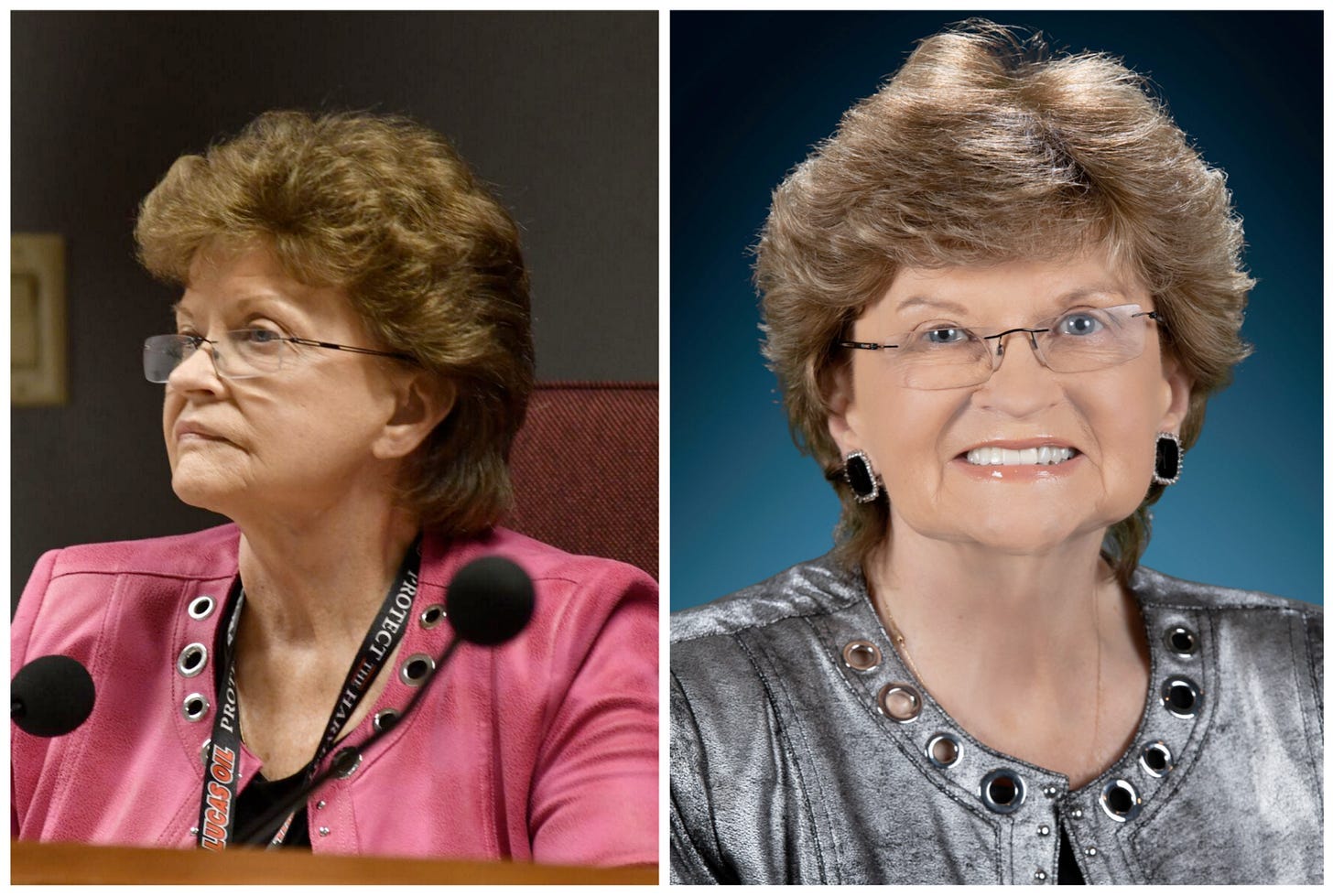
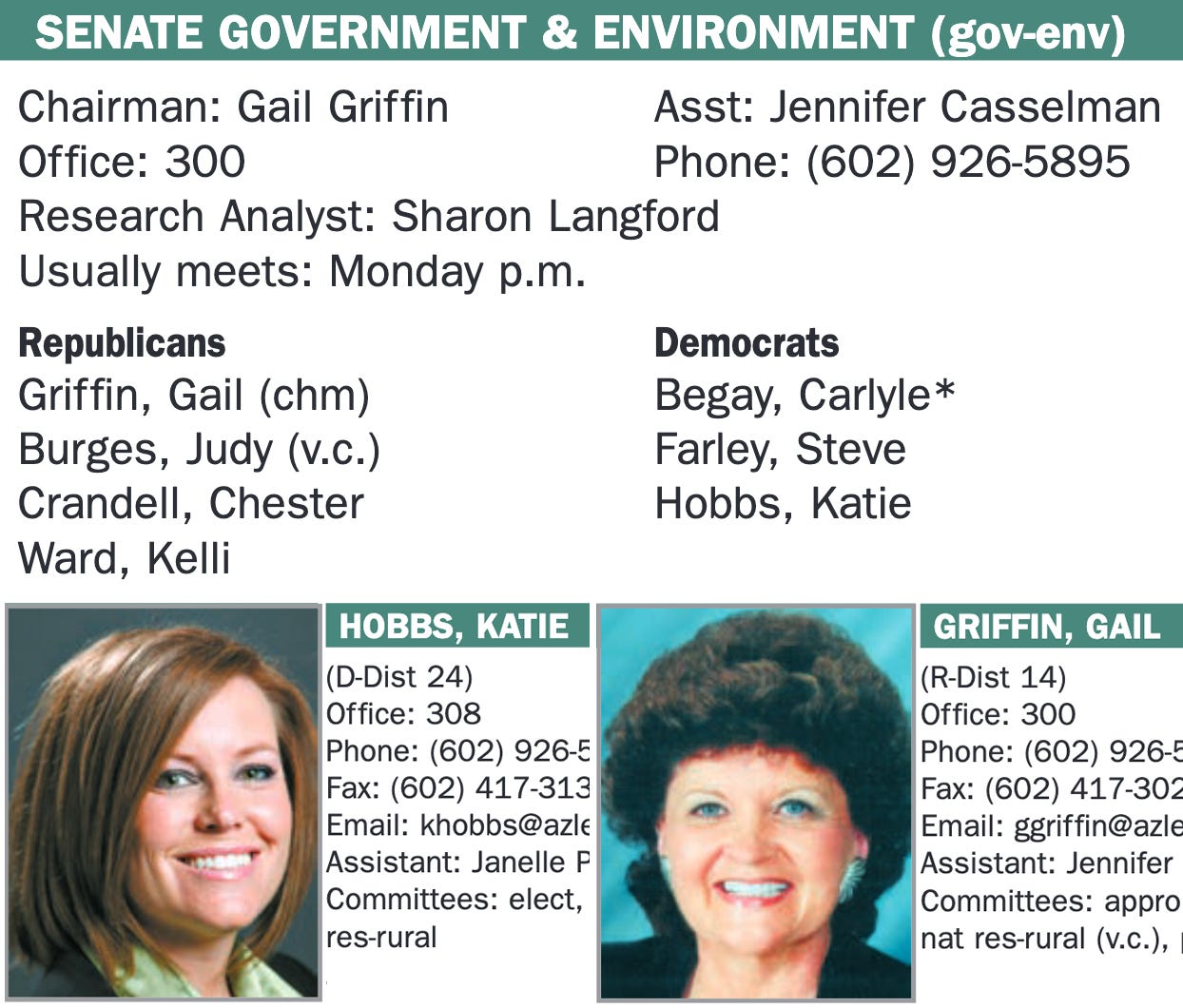


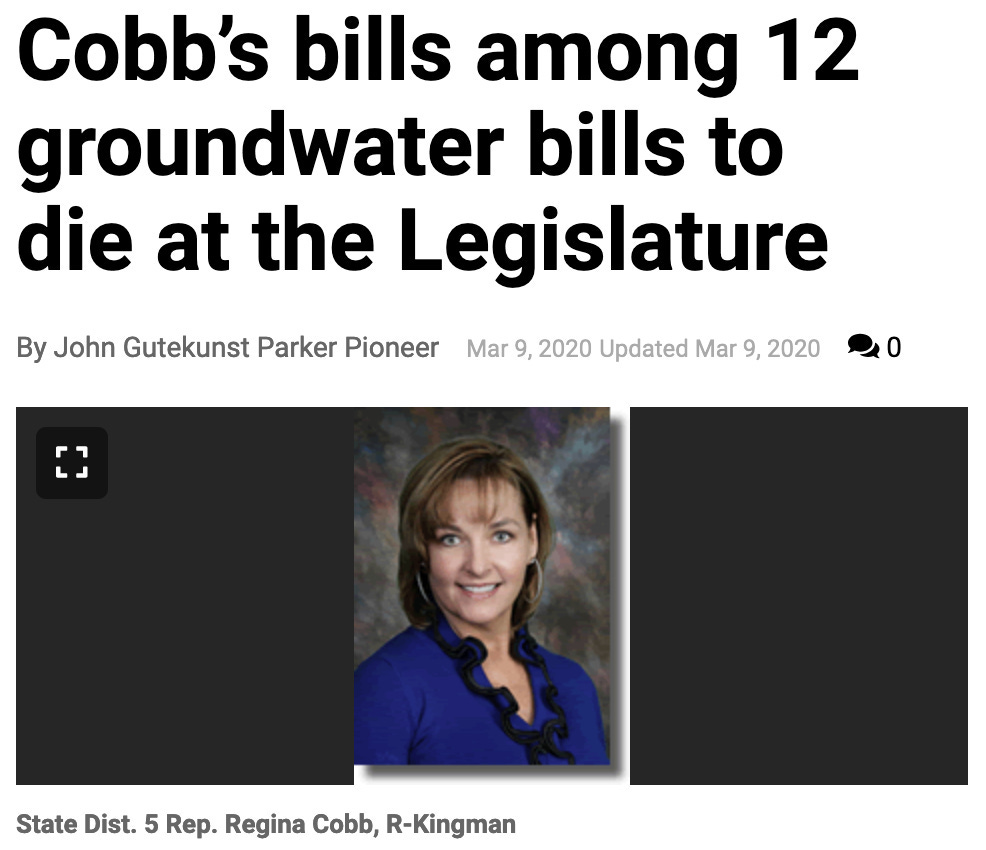
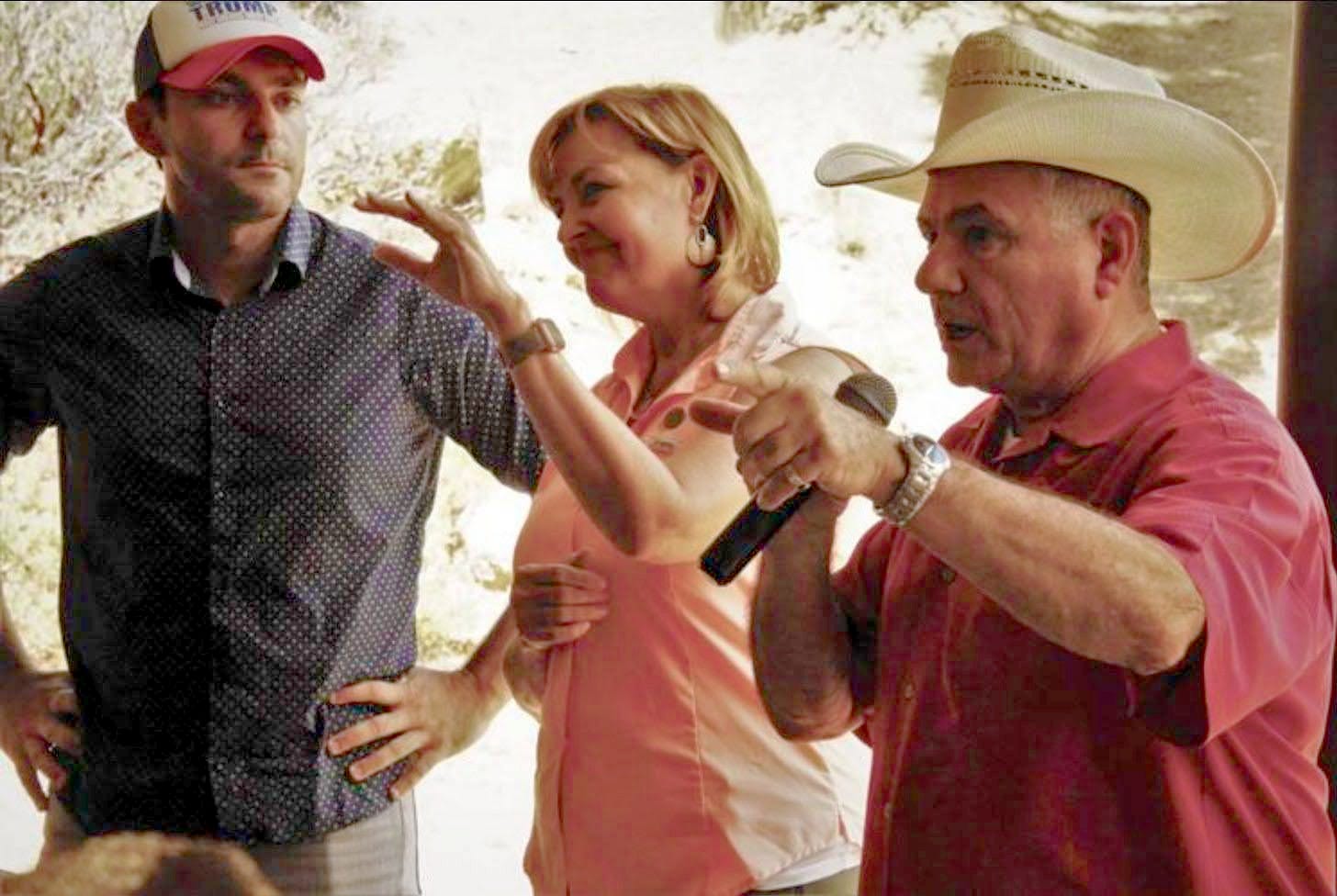
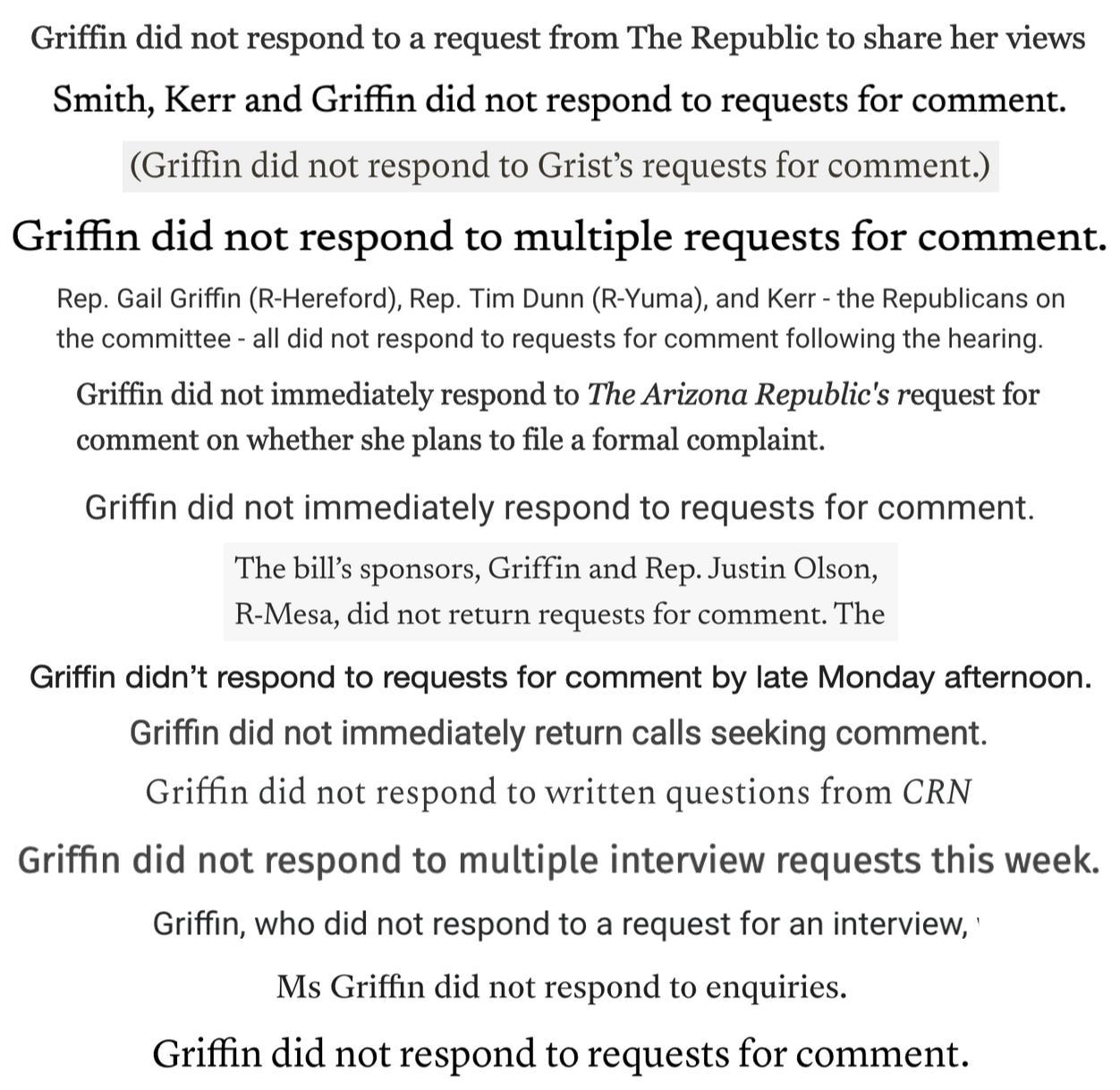
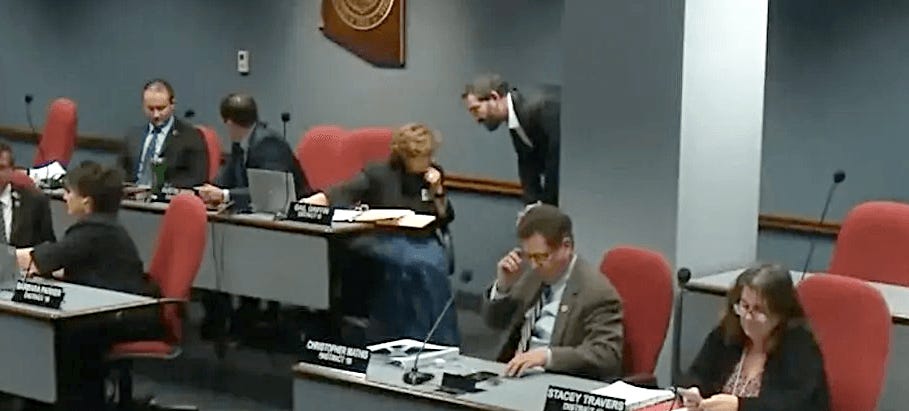


Griffin is a pox on Arizona water rights. She won't be happy until the last drop is gone.